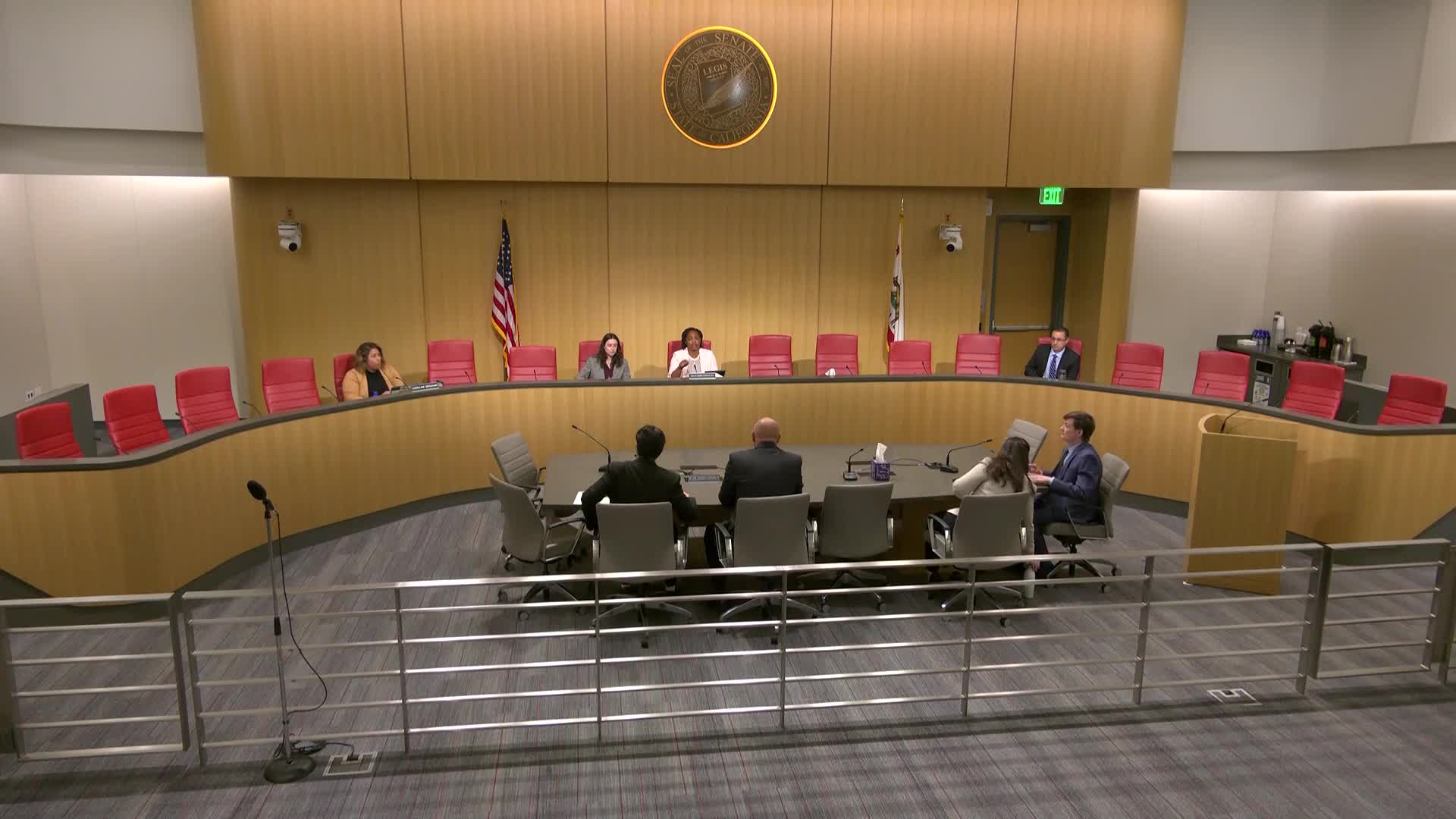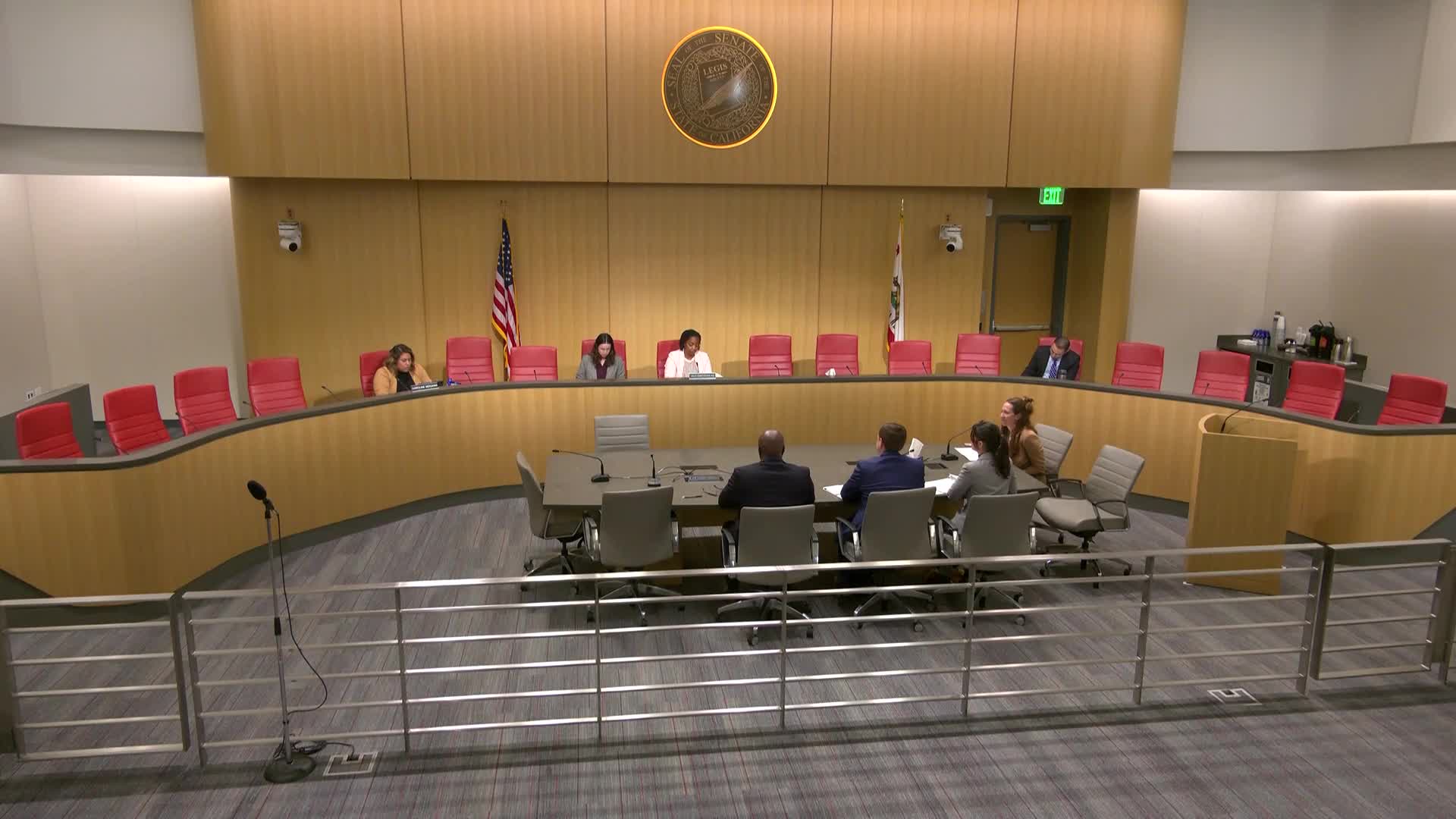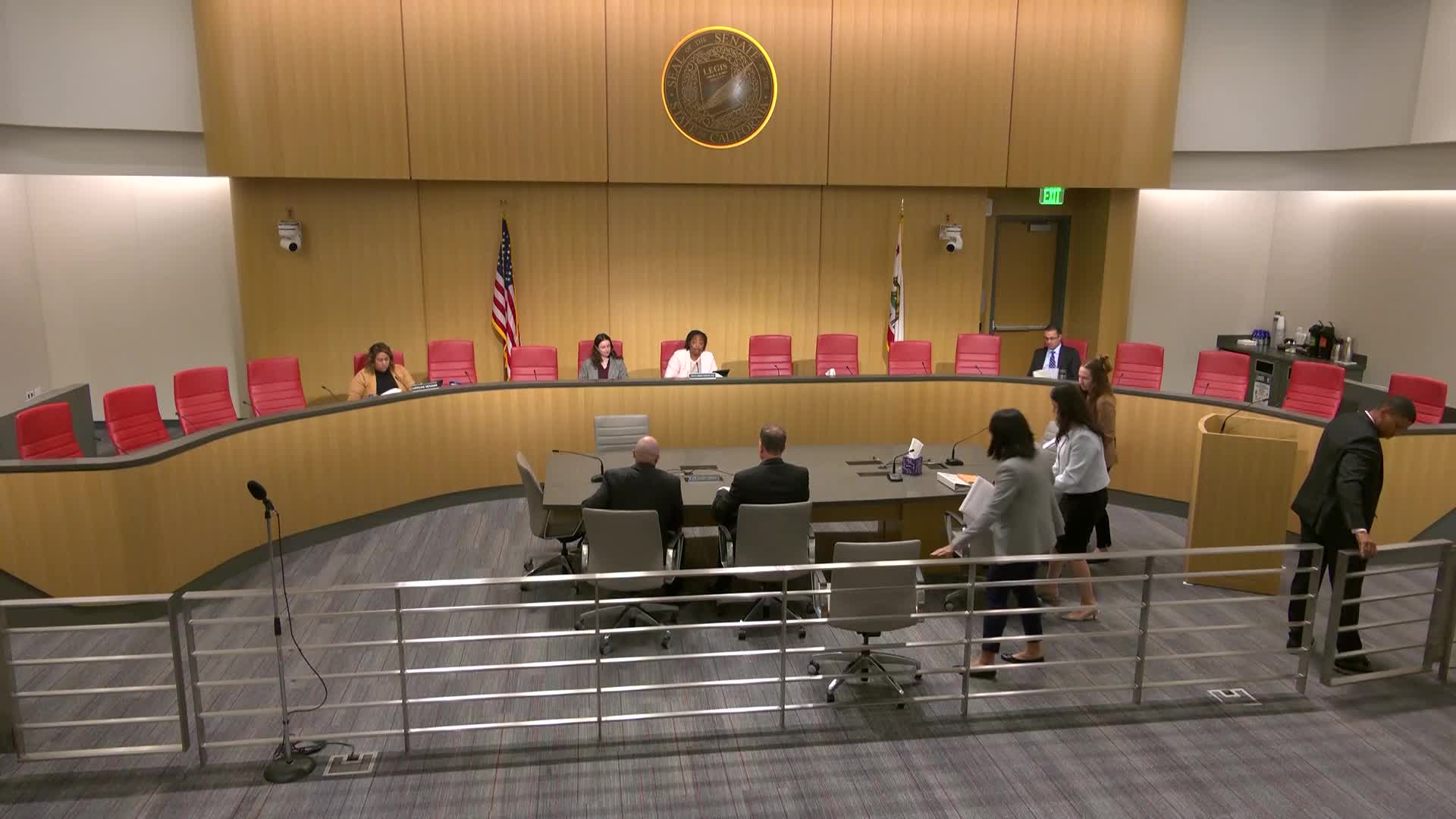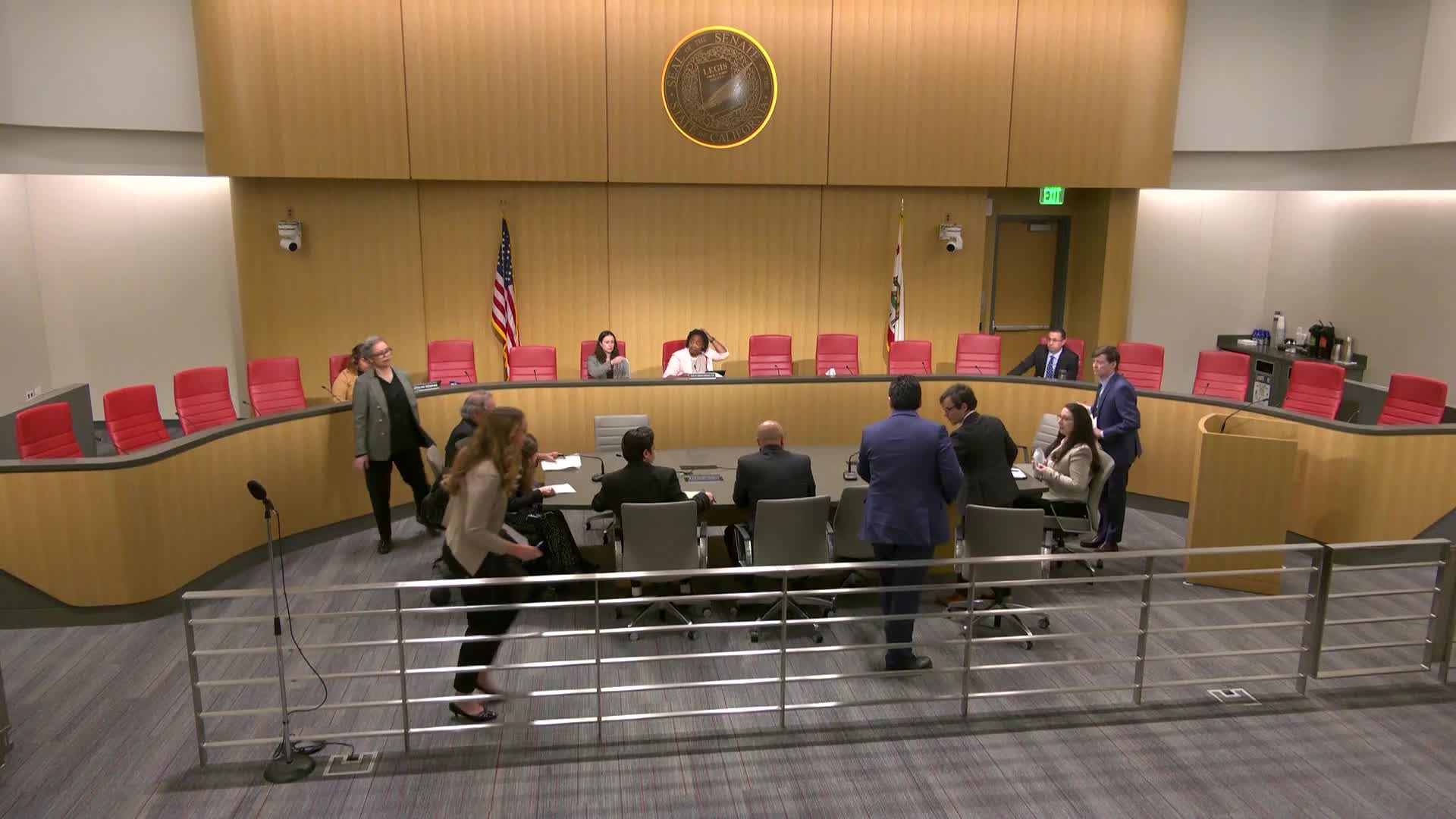Article not found
This article is no longer available. But don't worry—we've gathered other articles that discuss the same topic.

Department of Developmental Services outlines $19 billion budget request, warns federal Medicaid uncertainty could affect programs

Community Services and Development: Prop 4 farmworker housing allocation and AB1163 data changes require additional implementation funding

Department of Aging seeks funds for ADRC expansion and ombudsman programs; advocates warn of federal funding threats

